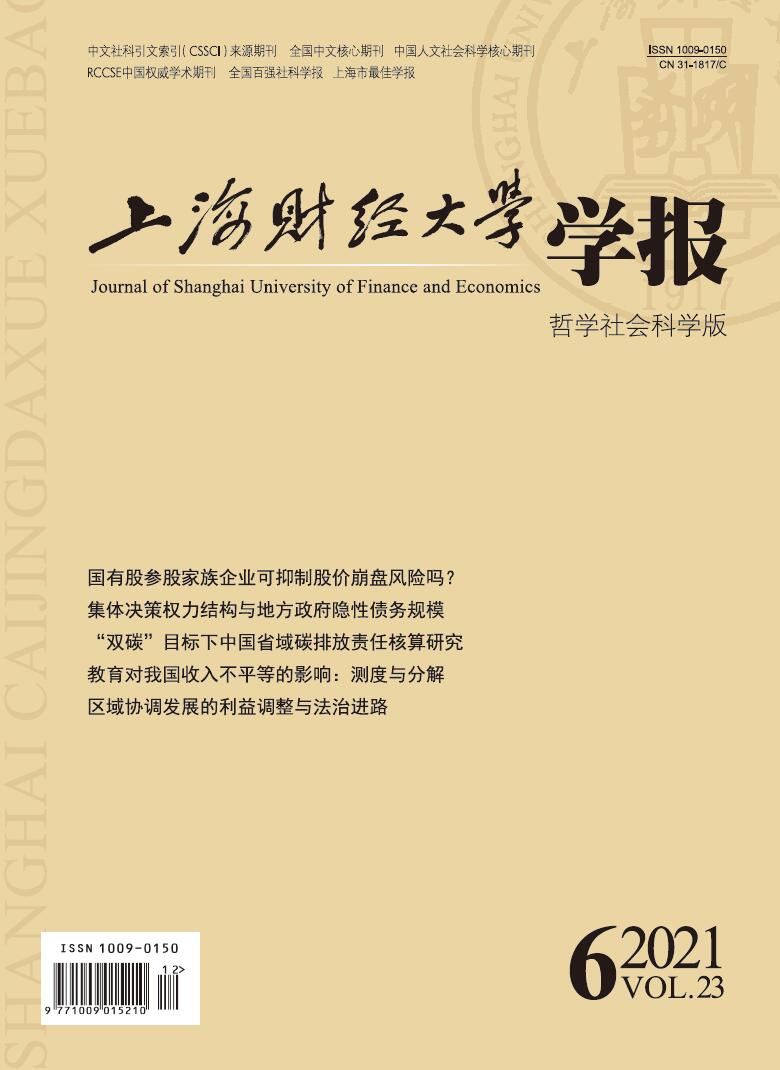The promotion of the national strategy of regional coordinated development means that local interests are expanding from unitary and dismembered to integrated and public. In the transition period, there are still great differences in the development demands and interest propositions of China’s regional economic stakeholders, the penetration of local government administrative barriers into socio-economic activities is still strong, and the externalities of regional behavior exacerbate the imbalance of regional interest distribution. Therefore, the distribution and adjustment of regional interests is the core issue that “regional coordinated development” must face. Affected by the thinking of macroeconomic policy regulation, the interest adjustment of regional coordinated development in China still stays in the stage of policy-driven and power intervention. In practice, a large number of policies and guiding opinions issued by the central government and local governments have gradually revealed the disadvantages of inadequate policy coordination ability, extensive and boastful implementation, and insufficient play of market allocation function. The thinking of rule of law has not been formed, and the application of rule of law tools has not yet entered the governance vision of governments at all levels. Theoretically, the existing research on the interest adjustment of regional coordinated development mainly focuses on the interpretation and adjustment of policy governance tools, while the demonstration and analysis of the legal governance model of regional interest coordination is relatively weak. This phenomenon does not coincide with the national governance background of promoting the comprehensive rule of law and adhering to the integrated construction of a country under the rule of law, a government under the rule of law and a society under the rule of law. China’s regional interest coordination needs not only the guidance of policy tools, but also the institutional norms of legislation. Both governance tools are indispensable. Legal governance model is the key force to coordinate interests, solve conflicts and establish order. We must strengthen the legal thinking of regional interest adjustment, transform mature regional policies into law through necessary procedures, form a reproducible authoritative rule system, and realize the transformation of regional interest coordination from power intervention to legal governance. At the same time, we should timely formulate the regional coordinated development law, give full play to the overall coordination function of the top-level design, break through the obstacles in administrative divisions, and distribute and adjust interests from top to bottom, so as to unify the strategic vision and action principles in legislation, promote the institutionalization of regional coordinated development, strengthen the inclined allocation of interests to vulnerable regions, clarify the legal status, rights and obligations of regional organizations, promote the establishment of barrier-free common market and common rules, and finally promote the realization of the optimal goal of regional overall efficiency.
 / Journals / Journal of Shanghai University of Finance and Economics
/ Journals / Journal of Shanghai University of Finance and EconomicsJournal of Shanghai University of Finance and Economics
LiuYuanchun, Editor-in-Chief
ZhengChunrong, Vice Executive Editor-in-Chief
GuoChanglin YanJinqiang WangWenbin WuWenfang, Vice Editor-in-Chief
Interest Adjustent and Legal Governance Approach of Regional Coordinated Development
Journal of Shanghai University of Finance and Economics Vol. 23, Issue 06, pp. 123 - 137 (2021) DOI:10.16538/j.cnki.jsufe.2021.06.009
Summary
References
Summary
Cite this article
Chen Wanling, Chen Yiyu. Interest Adjustent and Legal Governance Approach of Regional Coordinated Development[J]. Journal of Shanghai University of Finance and Economics, 2021, 23(6): 123-137.
Export Citations as:
For
ISSUE COVER
RELATED ARTICLES




 5156
5156  8756
8756

